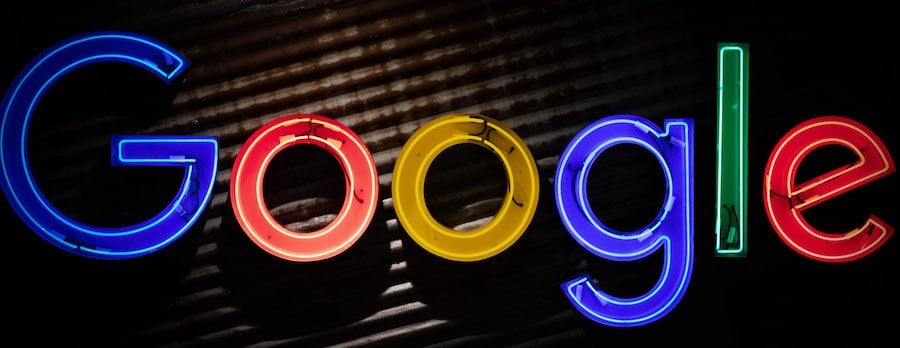SEO is not a thing. Ok before everyone working in SEO rushes off to apply for new jobs, I will explain. SEO is not one single thing that you can do, it's the end result of lots of different activities.
 As I'm sure you know, SEO stands for Search Engine Optimisation. But if you want to "do some SEO' what does that really mean? Let's dig into that a little deeper. If you want to "do SEO" it means that you want to optimise your website for search engines.
As I'm sure you know, SEO stands for Search Engine Optimisation. But if you want to "do some SEO' what does that really mean? Let's dig into that a little deeper. If you want to "do SEO" it means that you want to optimise your website for search engines.
The dictionary definition of "optimise" is make the best or most effective use of . You want your website to make the most effective use of search engines. Search engines are there to provide answers to the questions that users ask. So making the most effective use of search engines is all about making sure that your site is the one that people find when they ask a question about the thing that your business does. The aim of that is for the right people to find it, visit it and ultimately do business with you. So now we are getting somewhere.
In order to get your website to make the best use of search engines there are a number of activities you need to do including making sure odd-sounding things like making sure your robots txt file is optimal. I know, right now you're thinking, what is robots txt? But SEO is the end result of these activities, it's not an activity in its own right.
If that is still confusing, so here's an example which might help. Let's imagine that you are the marketing manager of a company with a website that is not getting found online, and so you ask us to "do SEO" for you. Here's how we would approach the project.
Look At The Data
We'd want to see what your current situation is, and assess the problem. We'd look at what your website is currently ranking for and where it's ranking so that we know what the starting point is. Do you have lots of rankings but on page 5 or 6 or Google? Do you have very few rankings at all? Are you ranking well but for the wrong things?
We'd also look to see if something has obviously gone wrong in the recent past, causing rankings to plummet, and figure out what happened.
Back To Basics
To figure out what the right words and phrases to rank for might be we need to know more about the business. What do you sell? What do people buy (these might not be worded quite the same - for example you sell a drill, they buy holes!)? What problem do they have when they need your product? Who are your customers? Who are your most profitable customers? What are your business objectives? What are your priorities for the next year? Who are your competitors?

SEO Strategy
Armed with this information we can start putting a strategy together. Using all the available data and the information you have provided we'll figure out the most important things you need to be doing to make the best use of the main search engines (realistically that means Google as it has about 90% market share). From there we will create a plan to move you to where you want to be.
What's The Plan?
The plan will obviously depend on what we have found. Some of the tactics we might pursue are:
Site Speed
if your site is very slow, it won't provide a good experience to people looking for answers, so Google will rank it lower than a site that loads quickly. We can overhaul your site to make it faster. Check your site speed here.

Mobile Friendly
If your site is not responsive (it changes format for different device screen sizes) then Google will not be happy. Google has adopted mobile first indexing, so if your site does not work well on the small screen it will affect your rankings.
Titles and Headers
Also known as On-Page SEO, these are the signals to Google that explain what the page is about, as well the words that encourage searchers to click through and visit your page. As a starting point, we will make sure that everything is working as hard as possible and improve them as needed.
Design
If people are arriving on your website and it looks terrible or confusing or just not in line with what they expected they will leave, quickly. If they do that Google will notice and conclude that your page does not provide a good user experience and it will therefore stop recommending that page. In that scenario we would suggest a redesign to make sure that you are grabbing your visitors' attention and giving the opportunity to see what you do.
Helpful Content
Aaaaand here's the biggie. In most cases this is where our efforts (and your budget) will be concentrated. It is also the main reason why you can't just buy "half a pound of SEO" and then forget about it.

The only reason Google will show your website to people who are searching, is if it provides the best answer to their question. That comes down, in the most part, to the quality of the information on the site.
There is no short cut, no way round it other than putting in the work to create pages on your website that give visitors the information they need.
Using keyword data and an understanding of your audience we will create an initial 2 - 3 month content plan. From there it's a case of researching and producing the required content, for all your different audiences and for the various stages of their buying journey. That might involve writing educational blog posts, informative product pages or detailed case studies. It may also involve scripting, filming and editing video footage to make the pages as useful as possible.
SEO Is An On-going Process
It doesn't end there though - you need to keep at it. The Google monster needs to be fed regularly with a high quality diet of helpful content if you want to make the most effective use of it.
So, when you ask your digital marketing agency for some SEO, you will now know what it involves and why there is not a simple answer to how much it costs. If you'd like a plain English conversation we're an Aberdeen based SEO agency that will restore your faith in search marketing.

